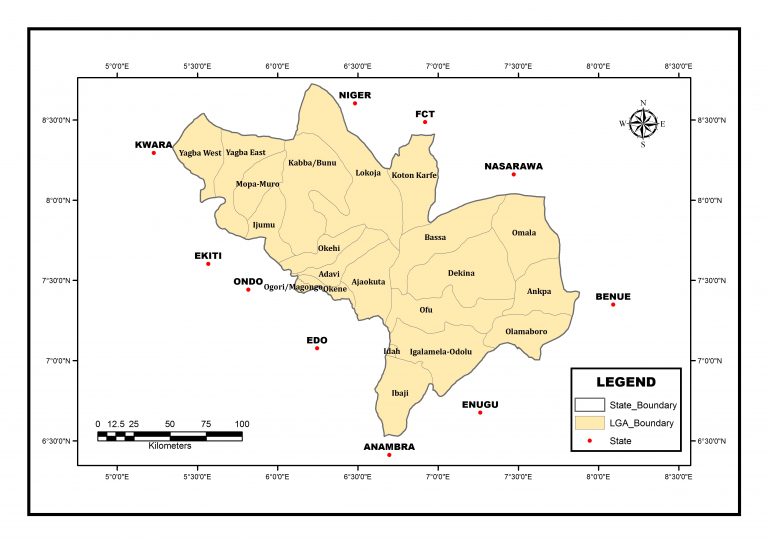Just 48 hours to the all-important governorship election in Kogi on Saturday, November 16, 2019, the Senate on Wednesday approved the Federal Government’s promissory note issuance of N10.069bn to the state government for projects executed on behalf of the Federal Government.
Although a total of 22 other contestants are seeking to unseat incumbent Governor Yahaya Bello of the ruling All Progressives Congress (APC), who is going for a second four-year term, the major contenders have been identified as Engr Musa Wada of the Peoples Democratic Party; Abdulahi Mohammed of the Alliance Party; Barr Natasha Akpoti of the Social Democratic Party; and Sheikh Jibril Ibrahim of the All Progressive Grand Alliance.
Wednesday approval by the Senate was sequel to the presentation and consideration of a report by the Senate Committee on Local and Foreign Debts, according to a statement by Ezrel Tabiowo, Special Assistant (Press) to President of the Senate.
In approving the repayment, the Senate brushed aside an argument by the Senate Minority Leader, Senator Enyinnaya Abaribe, that the approval is delayed until after Saturday’s governorship election scheduled to hold in the state this weekend.
Abaribe, while raising no objection to the payment, since the state has done the work of the Federal Government and should be paid, just like its peers, said: “what I don’t want is a misuse of this fund. I have the mandate of the minority to say this can wait until next week. Let’s us delay for only one week after elections then they can be paid.”
In his counter-argument, Senate President Ahmad Lawan explained that Kogi State was entitled to be paid all monies spent on the execution of Federal Government projects in the state.
According to him, Kogi State was denied approval for refund when 24 state governments received approval under the Eighth Senate, even when it applied for this refund.
“All the States that applied were approved here by the last Senate.
“Now as the ninth Senate, we have seen the necessity and are doing justice. We have done justice to others, and we have to do justice to Kogi State. When it is done is not the matter.”
Recall that President Buhari, in a letter, two weeks ago to the Senate, had requested approval for the refund to be made to the Kogi State Government (READ MORE).
Chairman of the Senate Committee on Local and Foreign Debts, Senator Clifford Ordia, said: “the approved sum is in Capital Expenditure which has to do with a refund to the State Government for monies spent in the execution of Federal Government Projects in the state.”
Key officials of the state government, he told his colleagues, were invited to brief the committee in the course of its legislative work, adding that the committee also assessed all submissions made by the Federal Ministry of Finance, alongside documents from the Bureau of Public Procurement and the Kogi State Government.
The committee in its report stated that it undertook an oversight visit to Kogi State to assess the projects and maintained that the said projects met the required standard by the Federal Ministry of Works and Housing.
The projects inspected by the Committee are Reconstruction of Shintaku-Odugbo road, reconstruction of Ganaja-Ajaokuta road, reconstruction of Idah-Onyedega road, and dualization of Lokoja-Ganaja road.
Other executed federal projects were: reconstruction of the three-span bridge along Shintaku-Odugbo road, reconstruction of the four-span bridge along Shintaku-Odugbo road, and reconstruction of Iyamoje-Igagun-Ifeolu-Kptun-Ponyan-Jegede road.
The committee, in its findings, stated that “inspections were carried out by the Federal Ministry of Works and Housing,” adding that Kogi State has completed all the said projects and paid all contractors that executed them.
Senator Jibrin Barau (APC, Kano North), while commending the Governor of Kogi State, Yahaya Bello, said “Kogi has done very well. This should be approved so as to show other governments to take a cue.”
The Senate eventually approved President Buhari’s request for a refund to Kogi State government after a voice vote called by the Senate President.
Trending Today
Menu








